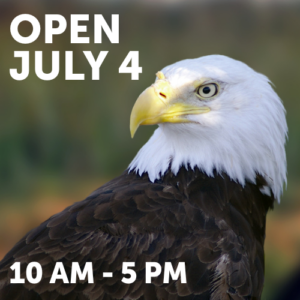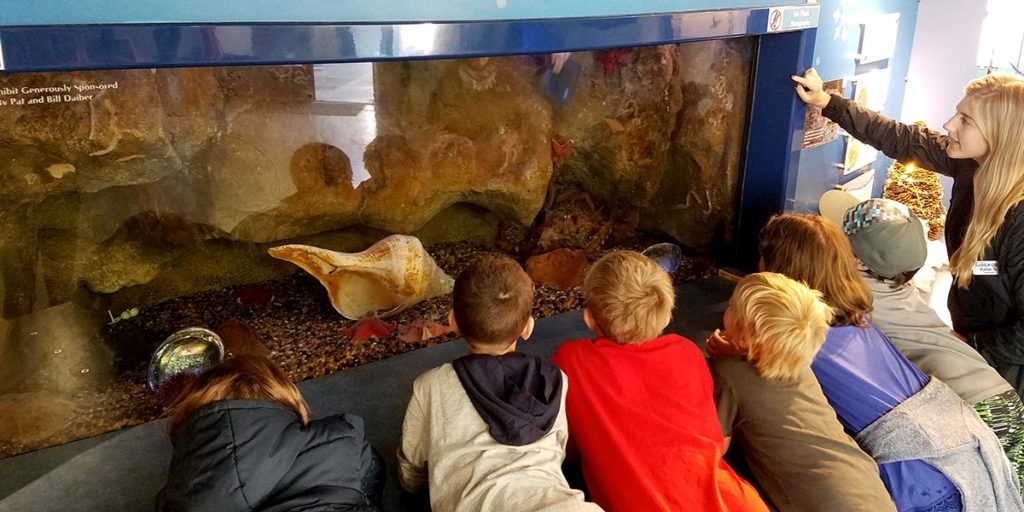
Overview
Living Lab Programs include hands-on lesson, that are NGSS and CCSS aligned. Trail activities, aquarium scavenger hunts, and exploration of exhibits are led by teachers / school staff / chaperones. Lunch space with storage is provided.
Program Times and Schedules
If you arrive after your designated arrival time or leave before the end time, your program will be cut short and modified.
1 Class (up to 20 students)
9:30 – 1:30
- 9:30 – 10:30 Program
- 10:30 – 11:30 Aquariums
- 11:30 – 12:00 Lunch
- 12:00 – 1:30 Trails & Outdoor Spaces
2-3 Classes (approx. 21-40 students)
9:30 – 1:30
- 9:30 – 10:30 Group A Program ; Group B Aquariums
- 10:30 – 11:30 Group A Aquariums; Group B Program
- 11:30 – 12:00 Lunch
- 12:00 – 1:30 Trails & Outdoor exhibits
Living Lab Program Descriptions & Resources
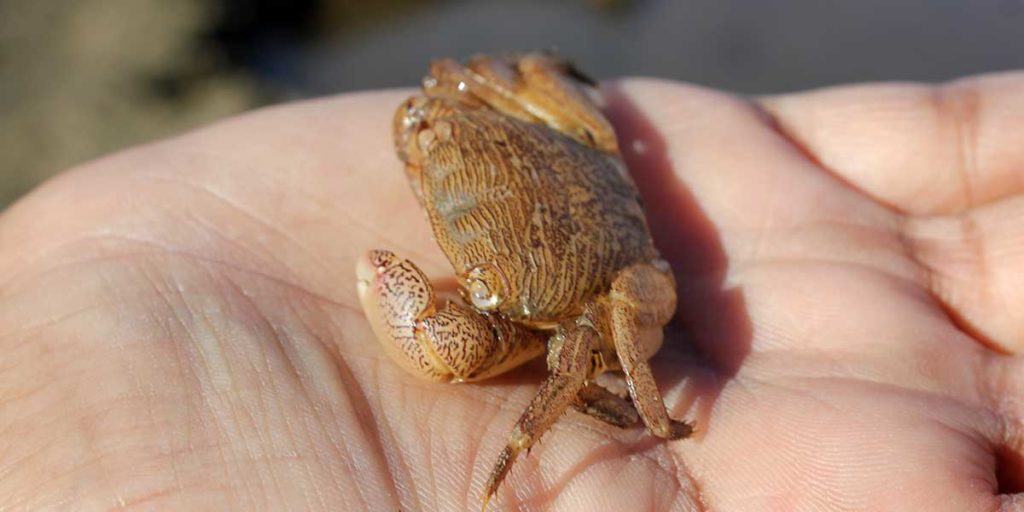
Crustacean Lab (3)
Ever wonder what it means to be a crab? Get up close with crabs, lobsters, and other crustaceans. From exoskeletons to real live animal encounters, students will learn all about these marine invertebrates.
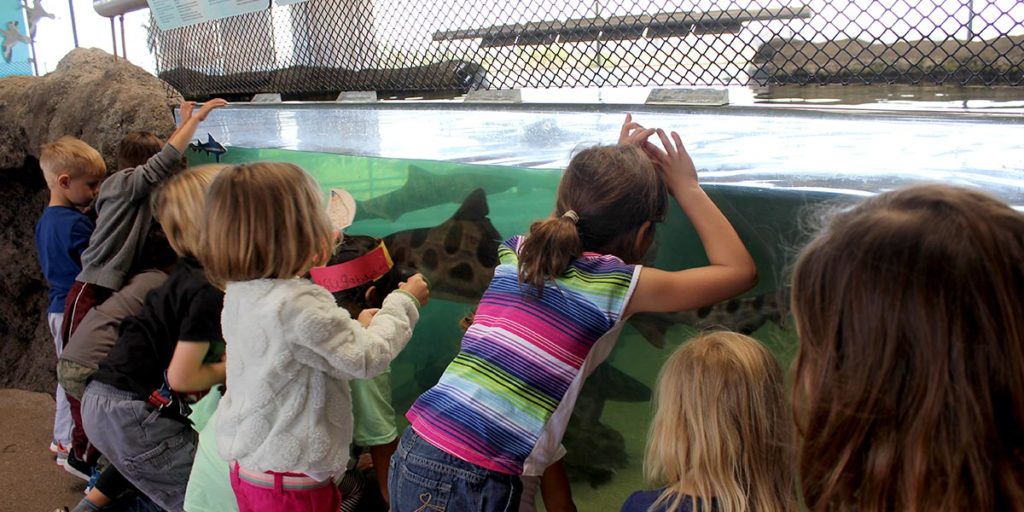
A Shark’s Tale (3)
Students will become shark experts on local species and may even get to meet a shark up-close! This interactive lab teaches students about the many adaptations these top predators have to survive.
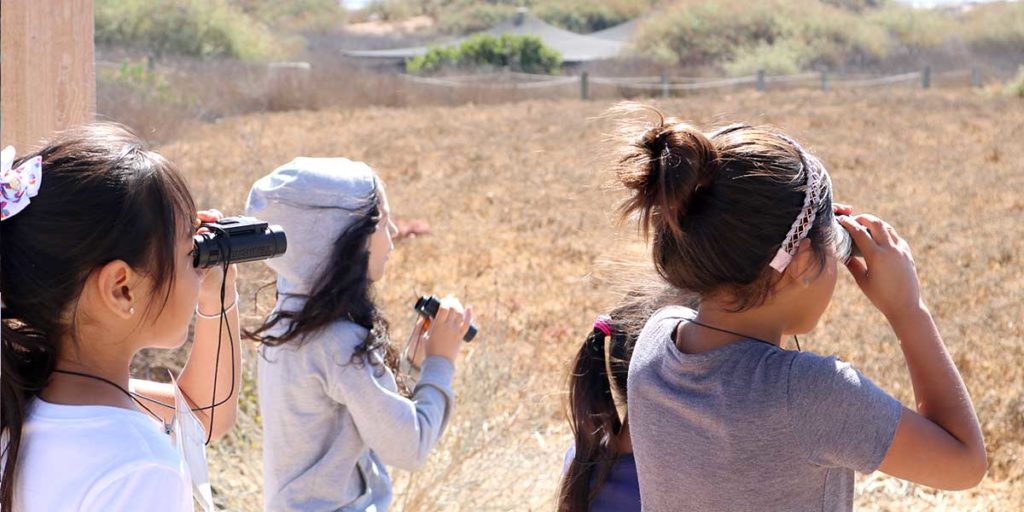
Survivor in the Saltmarsh (4)
Why do birds fly, fish swim, and crabs crawl? Discover, through up close encounters, what structures help saltmarsh organisms survive. Students become experts of structure and function.
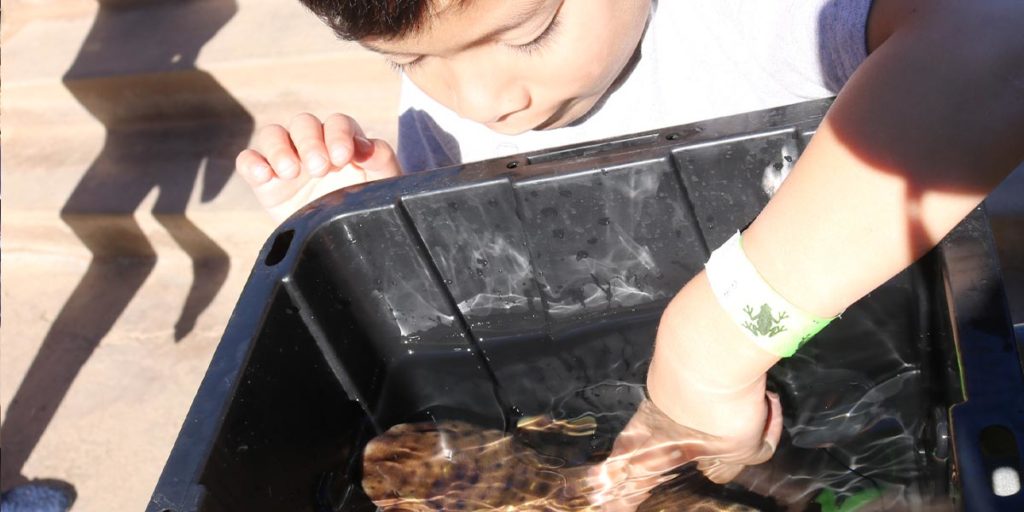
Fish Dissection (4-5)
Get your hands all scaly and slimy with this dissection. Through this fun, interactive dissection, students explore the internal and external parts that help a fish survive its marine habitat.
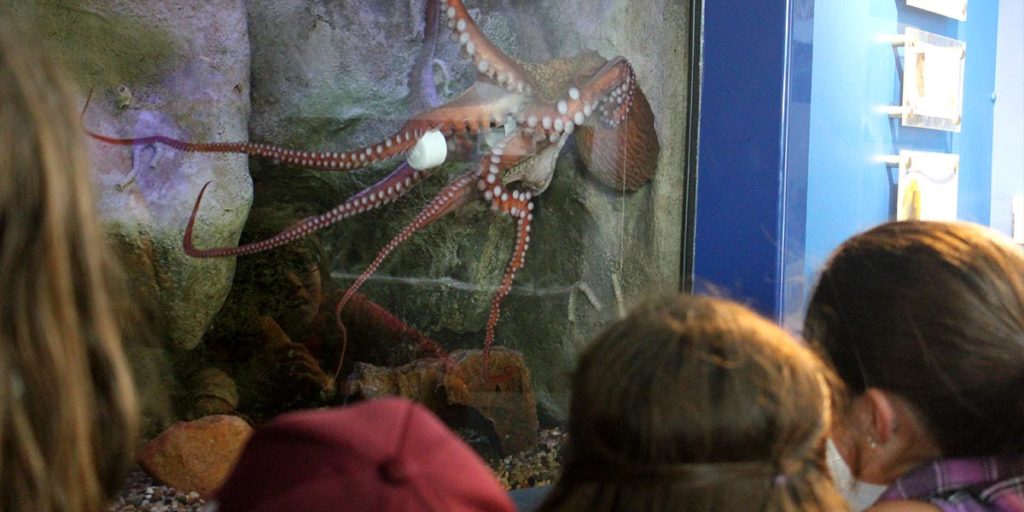
Squid Dissection (5)
Students will learn about the internal and external parts that help a squid survive its ocean habitat. From three hearts to a reduced shell, the squid is a fascinating mollusk to scientifically study.
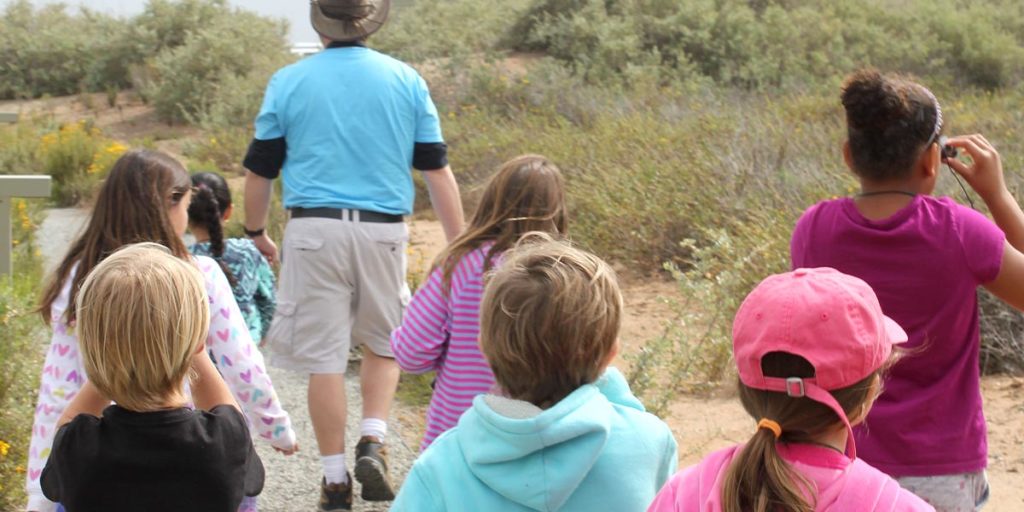
Food Chain Hunt (5)
Kick start your ecology knowledge with a fun hike on Sweetwater Marsh. Students will study important aspects of ecology such as adaptations, predator-prey relations, and the recycling of matter.
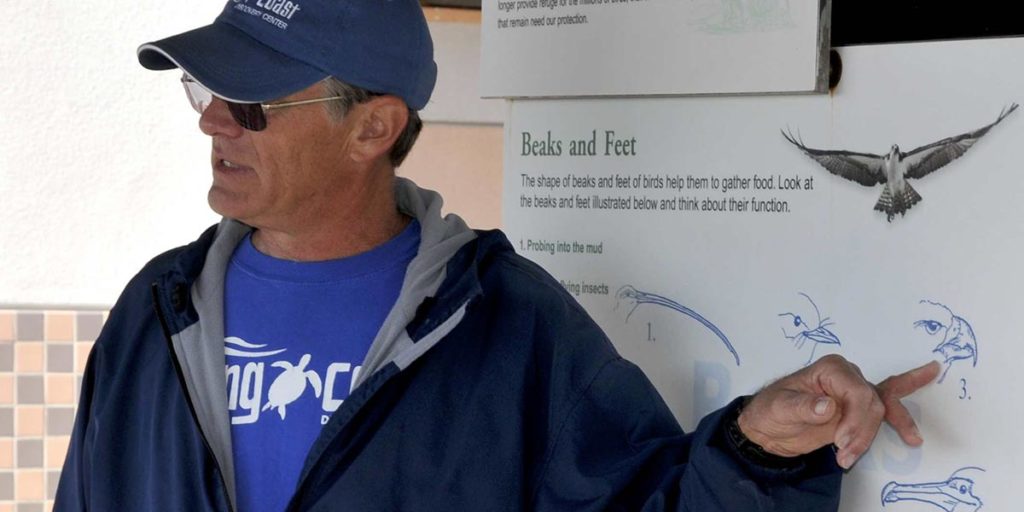
Educational Tour (3-5)
This program is led by our team of highly trained docent volunteers. Tours include visits to the outdoor exhibits: sea turtles, sharks & rays, and eagles. Living Labs include the tour as part of the program. The Education team will do its best to assign a docent volunteer to each group that registers, however we cannot guarantee it. Accommodations will be made to the best of our ability.
